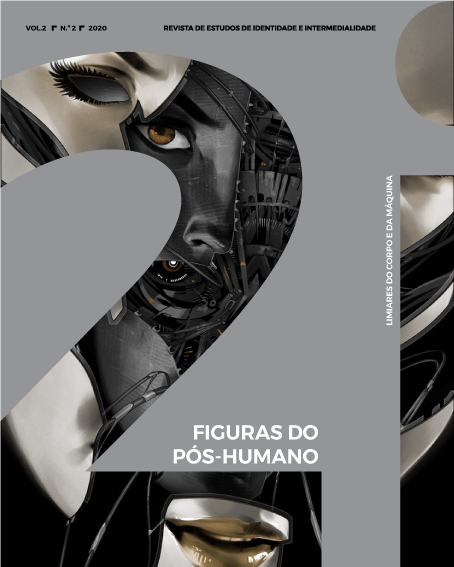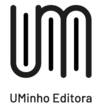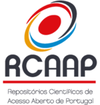Problematising the human and anticipating the post-human
From Blake and the Shelleys to Dickens and Wells – from poetry to fiction
DOI:
https://doi.org/10.21814/2i.2648Keywords:
human; post-human; humanities; nineteenth-century literature.Abstract
This paper will focus on the diverse ways Romantic and Victorian writers engage with the contemporary concepts, categories and products of the ‘human’, ‘inhuman’ and ‘post-human’ in an increasingly casuistic and dystopian nineteenth-century ‘brave new world’, and how they depict and represent them in their respective poetical and fictional works. The paper will thus attempt to show how, in the fast developing industrial, technological and scientific environment of the period, authors like Blake, Byron, the Shelleys, Dickens, Stevenson, and Wells imaginatively propose different ontological possibilities for both the existence and reproduction of the ‘subject’, not merely speculating on the ‘futures’ of humanity and ‘the humanities’ but also playing their own deepest hopes and fears out, namely of what this new ‘being’ would entail. The paper will demonstrate that these British writers’ eclectic creations paved the way for the increasingly complex multicultural, multigendered post-human reality of today, whose cultural agents have curiously adapted and transformed their often highly graphic works into screen fictions and multimedia metaphors that simultaneously haunt popular culture and defy the scientific and academic communities.
Downloads
References
Anders, Günther (2016). On Promethean Shame. In Prometheanism: Technology, digital culture and human obsolescence, Christopher John Müller, (pp. 29-95). London: Rowman & Littlefield International.
Blake, William (1965). The complete poetry and prose, edited by David Erdman Berkeley: University of California Press. Revised 1982.
Bonnet, Charles (1764). Contemplation de la nature. Tome Premier. Amsterdam: Marc-Michel Rey.
-------------------- (1770). La palingénésie philosophique, ou idées sur l’état passé et futur des êtres vivans. Tome Premier. Genève et Lyon: J.M. Bruyset.
Botting, Fred (2008). Limits of horror: Technology, bodies, gothic. Manchester: Manchester University Press.
Braidotti, Rosi (2013). The posthuman. Cambridge and Malden: Polity Press.
Brewster, Scott, et al., eds. (2000). Inhuman reflections: Thinking the limits of the human. Manchester, UK: Manchester University Press.
Bulwer-Lytton, Edward. (1871). The coming race. Peterborough, Ontario: Broadview Press, 2002.
Butler, Samuel (1872). Erewhon, or over the range. London: Trubner & Co. (Internet Archive), 2016.
Byron, George Gordon (1816). “Darkness.” The Norton anthology of English literature. S. Greenblatt. 8th ed. Vol. D. New York, London: Norton, 2006. 614-6.
Clark, D. (2001). Kant's Aliens: The "Anthropology" and Its Others. CR: The New Centennial Review, 1(2), 201-289. Consultado em www.jstor.org/stable/41949284
Clayton, Jay (2003). Charles Dickens in cyberspace: The afterlife of the nineteenth century in postmodern culture. Oxford and New York: Oxford University Press.
--------------- (2007). Victorian Chimeras, or What Literature Can Contribute to Genetics Policy Today. New Literary History, 38, 569-91.
Darwin, Charles (1871). The descent of man, and selection in relation to sex. Vols.1 and 2. London: John Murray.
Dickens, Charles (1854). Hard Times. Oxford and New York: O. U. P., 1989.
Effinger, Elizabeth (2014). "The Romantic Posthuman and Posthumanities". (Unpublished PhD thesis). University of Western Ontario, Canada. Electronic Thesis and Dissertation Repository. 1940. https://ir.lib.uwo.ca/etd/1940
Eliot, George (1860). The Mill on the Floss. Oxford and New York: O.U.P., 2008.
Foucault, Michel (1989). The order of things. An archeology of the human sciences [Gallimard, 1966]. London and New York: Routledge.
Gaskell, Elizabeth (1855). North and South. London: Penguin Classics, 1996.
Guimarães, Paula Alexandra (2018). ‘Like an inspired and desperate alchymist’: Ler/Ser Frankenstein no Cruzamento das Ciências e das Humanidades. Capítulo VII. In Alberto F. Araújo, Rogério de Almeida e Marcos Beccari (orgs.), Olhares sobre Frankenstein: Imaginário e educação. Vol.1 de Mitos da Pós-Modernidade (pp. 175-197). São Paulo: FEUSP.
Kant, Immanuel (2006). Anthropology from a pragmatic point of view, Robert B. Louden. Cambridge Texts in the History of Philosophy, C.U.P.
Ketabgian, Tamara (2011). The lives of machines: The industrial imaginary in Victorian literature and culture. Michigan: University of Michigan Press.
Levinas, Emmanuel (1947). De l’existence à l’existant. Second edition. Paris: Vrin, 1986.
Lyotard, Jean-François (1988). The inhuman. Reflections on time. Stanford, California: Stanford University Press, 1991.
Marx, Karl (1867). Capital: A critique of political economy. London: Penguin Books Limited, 1976.
Merleau-Ponty, Maurice (2003). Nature: Course notes from the Collége de France. Evanston Illinois: Northwestern University Press.
Pennant, Thomas (1781). History of quadrupeds (2 volumes). Printed for B. White, London.
Robinet, J.B.R. (1761-8). De la nature. 5 volumes. Amsterdam: E. van Harrevelt.
Shelley, Mary (1818). Frankenstein, or the modern Prometheus. London: Penguin Classics, 1992.
----------------- (1826). The last man. Ware: Wordsworth Editions, 2004.
Shelley, Percy (1820). Prometheus unbound: A lyrical drama in four acts. Cambridge: Cambridge Library Collection, 2013.
----------------- (1824). “The Triumph of Life”. Selected Poetry. London: Penguin Books, 1956.
Smeele, Wietske (2018). The Victorian posthuman, monstrous bodies in literature and science. Nashville: Vanderbilt University.
Snyder, E. E. (2013). Moreau and the Monstrous: Evolution, Religion, and the Beast on the Island. Preternature: Critical and historical studies on the preternatural, 2(2), 213-239. doi:10.5325/preternature.2.2.0213
Stevenson, Robert Louis (1886). Strange case of Dr Jekyll and Mr Hyde, and other stories. Richmond: Alma Books, 2014.
Sussman, Herbert (1968). Victorians and the machine, the literary response to technology. Harvard: Harvard University Press.
Trollop, Francis (1840). The life and adventures of Michael Armstrong, the factory boy. London: Henry Colburn.
Wells, H.G. (1896). The island of Doctor Moreau. A possibility. New York: Stone & Kimball.
-------------- (1898). The war of the worlds. New York: Vintage Books, 2018.
Wolfe, Cary (2010). What is posthumanism? London and Minneapolis: University of Minnesota Press.
Verne, Jules (1864). Journey to the centre of the earth. Oxford: Oxford University Press, 2008.
Published
Versions
- 2020-12-03 (3)
- 2021-05-04 (2)
- 2021-05-04 (1)
How to Cite
Issue
Section
License
Copyright (c) 2020 Journal 2i: Identity and Intermediality Studies

This work is licensed under a Creative Commons Attribution-NonCommercial 4.0 International License.


.jpg)










